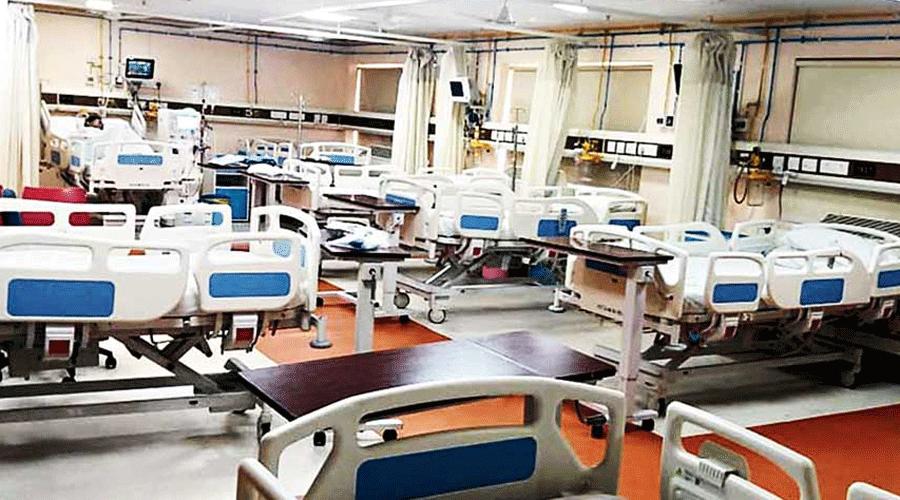A public interest litigation has prompted the state government to ask private hospitals if they treat some of the patients for free.
The PIL, filed in July 2022 before the division bench of Calcutta High Court headed by Chief Justice Prakash Srivastava, alleged that the state government failed to take any action against private healthcare institutes who have taken land on lease from the state but were not abiding by a rule under the West Bengal Clinical Establishment (Registration, Regulation and Transparency) Act 2017.
The rule, according to the petitioner, says that 20 per cent of outpatient department (OPD) patients and 10 per cent of inpatient department (IPD) patients should be treated free of cost.
The state government will be submitting a report to the court in this regard, said an official of the state’s legal department.
The petitioner, Utpal Roy, a member of the state consumer protection council, alleged that because of the “state government’s carelessness, poor people are suffering”.
The Telegraph reported on Wednesday that the state health department had issued a letter to several private hospitals asking whether they were providing treatment free of cost to 20 per cent of OPD and 10 per cent of IPD patients.
The letter mentions that the private hospitals were intimated about this on December 14, 2020, also. “You are once again instructed to submit a list of patients treated in your clinical establishment as “completely free” treatment (20% of OPD and 10% of IPD patients), along with the supporting details,” the letter stated.
A health department official said on Wednesday that most hospitals have not yet responded to the letter.
Roy had also written letters to chief minister Mamata Banerjee and the chairman of the West Bengal Clinical Establishment Regulatory Commission in this regard.
“I conducted surveys among 1,900 patients between August and October 2020 and again between January and February 2021 and found out they were not aware of the rule. I have requested the authorities to make this rule public to raise awareness about people’s rights,” said Roy.
“I have also appealed to the chief minister that the hospitals should display the rule at prominent places,” he said.
Moving the petition at the high court, Roy’s counsel Soumalya Ganguli had sought the court’s intervention.
“The state should inform the court how much land it had distributed to how many clinical establishments,” Ganguli had submitted before the court.
The lawyer also demanded that the state governments should inform the court whether the private clinical establishments, using government land, were treating 20 per cent OPD and 10 per cent IPD patients free.
Ganguli claimed that his client had written a letter to the appropriate department of the government for taking proper steps against the hospitals.
“But nothing has been done yet,” he said.
Appearing for the government, state advocate general S.N. Mookherjee has said that to hear the grievances of the patients in general, the state had constituted a commission for regulating the private clinical establishments.
After hearing both sides, the division bench had, in December issued an order asking the state to file a report on the contentions made by the petitioner.
“On several previous occasions, the state had failed to file the report and prayed for time. The division bench asked the state to file the report on February 20, the next date fixed for hearing the case,” a court source said.
According to an officer of the state legal department, the lawyers appearing for the state will submit a report before the court on February 20.

